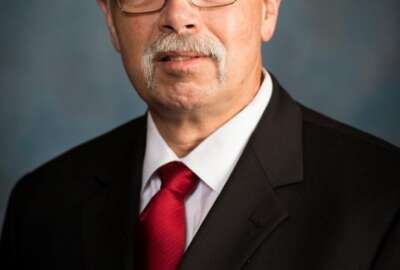
Is now the time to tweak your TSP portfolio?
Can being overly happy cut into your retirement nest egg? Senior Correspondent Mike Causey says yes, and he has the guru to prove it.
Given the current facts of life — from domestic American politics to worldwide terrorism — some feds are rethinking how much (if any) of their TSP portfolio should be in the plan’s international I-fund.
Will our new Cuba policy make the U.S. stock market C and S funds more attractive as a new and nearby market, starved for consumer goods, opens up?
Are rising oil prices a sign that it’s time to go back into oil and energy stocks? Or is this a false blip on the radar?
Did the Federal Reserve’s decision not to raise interest rates surprise and upset you? And when it does, will that make you nervous too?
If following the nightly news depresses you, welcome to the club. For happy news, as in the pair of eaglets hatched (live on TV) at the National Arboretum here in Washington, there is the offsetting bad news of adult eagles found dead of unknown causes in Maryland and Delaware. In other words, there is good news and not-so-good news. Which, if either, should be your guide? So what, as in what if anything should you be doing? Especially while building your retirement nest egg. For instance:
Are you waiting for the stock market to return to normal? If so, wait no longer. Financial writer Allan Roth, says it already has. It was the past 6 years that was so unusual. Did any money flow out of the C, S and I funds in the first two weeks of 2016?’ In other words, if you are waiting for market normalcy to return, it probably has. This is it! Roth will tell us why tomorrow on our Your Turn radio show.
Roth, who has been a contributor to The Wall Street Journal and CBS MoneyWatch, is our guest this morning (10 a.m. EDT) on Federal News Radio. Or 1500 AM in the Washington area. He understands the federal TSP and loves its lowest-in-the-business administrative fees. In fact, like other stock market experts, he’s said he wishes he could be in it.
In addition to the recent bombings in Belgium, Roth recalled the horrific Paris terrorist attack last November. “The U.S. stock market responded the following week by gaining 3.3 percent, which I think was the best single week in the stock market in 2016. International stocks also rose 2.7 percent that week. The conclusion isn’t that the market likes terrorism. … It’s that other events and even random movements of a very complex system known as the stock market are hard to explain and even harder to forecast.”
Roth is going to talk about the Seven Deadly Sins of investing. Number One on the list, he says, is optimism. It’s great to be optimistic some time, but there are times when worrying is good too. “While optimism cam be a positive trait for many facets of life,” he wrote in his AARP column, “it can be dangerous when it comes to money.” As in being overly optimistic could keep you from saving more toward retirement. As in the TSP.
Deadly Sin No. 2, Roth says, is consumerism. As in “spending money on the latest shiny thing can sure make us happy.” But having the most toys on the block is “a hedonistic treadmill” that will cut into your retirement spending money.
Inertia, the art of doing nothing, is also an enemy of the long-term investors as is impulsiveness. So is trust, as in trusting the wrong person or sources, along with greed and disorder. So do you suffer from any or all of them?
Listen to the show today. Call in if you like (202-465-3081) or email questions to me before showtime.
Nearly Useless Factoid
“Mexican Reggae” was the first working title for the Eagles’ hit song, “Hotel California”.
Source: Wikipedia
Copyright © 2024 Federal News Network. All rights reserved. This website is not intended for users located within the European Economic Area.
Mike Causey is senior correspondent for Federal News Network and writes his daily Federal Report column on federal employees’ pay, benefits and retirement.
Follow @mcauseyWFED




